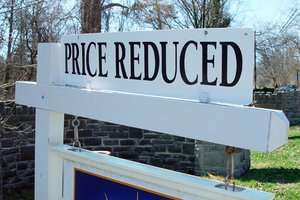
Effective marketing is more than sticking a sign in the yard. Successful sellers utilize dozens of marketing techniques to draw the largest pool of buyers. When buyers show up on your doorstep, here are tips on how to create a magical experience and encourage the buyer to make a purchase offer. Good marketing might not sell your house, but it will make the phone ring. Because if buyers don't call, you won't sell.
Photograph the Front
Most home buyers begin a home search online, so good photos are essential. Listings without a photo or with only an exterior shot are often passed over and ignored. Buyers are visual. Follow these tips and your house photo will look ten times better than the competition's:
• Crop out sidewalks and streets.
• Remove vehicles from driveway / front of home.
• Shoot up-close & angled photos.
• Avoid shade on the house.
Exterior Photographs
If you own a condo or townhome without a yard, then take pictures of the clubhouse, pool, spa or tennis courts. If you have a yard, however, buyers will want to see it.
• Emphasize space and shoot long.
• Mow the lawn & trim bushes.
• Remove evidence of pets.
• Put away children's toys.
Interior Photographs
Take photographs of every room. Even if you suspect the room won't photograph well, shoot it anyway because the photo quality just might astonish you and be useable.
• Open drapes & blinds
• Turn on lights.
• Focus on interesting details like the condition of a wood floor or a fireplace mantle.
• Remove trash cans & close toilet lids in bathrooms.
• Use floral arrangements in kitchens & dining rooms.
Print Advertising
Print advertising reaches buyers who read newspapers. Online ads reach the rest. If your neighbors say, "Everywhere I look, I see your home advertised," you're doing a good job. Puts ads in:
• Major newspapers. Find out which days pull the most readers. Typically it's Sunday but some newspapers also publish "picture classifieds" on other days.
• Local newspapers. You can probably run a larger ad for less money that will more closely target those looking in your area.
• Real estate publications. Check on press date; can you wait?
• Every Web site you can find. Most online listings are free.
Direct Mail
If you're an unrepresented seller, you can buy mailing lists from list brokers. If you are represented by an agent, ask about a direct mail program. I prefer oversized four-color postcards because they are inexpensive to mail and eye-catching. Here are three places to mail:
• Neighbors. Everybody has friends and relatives who might want to move near them.
• Agents who represent buyers in your neighborhood.
• Buyers who live in other areas and often relocate to your neighborhood.
Open Houses
Not every home is suitable for an open house due to location or other factors, and sometimes the only way to determine that is to try it. If nobody comes, that's probably a good indication. However, if your home is located near a high traffic area where buyers often swarm, then it's a good candidate.
• Place open house signs throughout the area directing buyers.
• Advertise in the newspaper.
• Advertise open house times online.
• Invite the neighbors; they're going to come anyway.
Host Broker / Agent Tours
If you're planning to sell your home without representation, then skip this step. However, since most buyers are represented by an agent, it's a good idea to draw as many agents and brokers as possible to view your home.
• Agents who linger in your home will better remember details to later describe to buyers.
• The best way to entice an agent to hang around is food. Doesn't need to be expensive, sandwiches will suffice.
• As agents munch and network, the hope is they will admire your home and bring back a buyer.
To get more information on real estate please contact
Andrea Scott

















